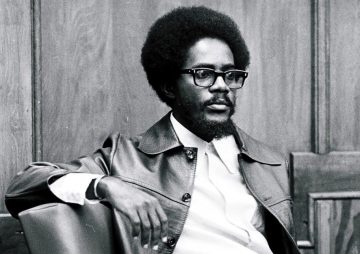Sam Klug in Public Books:
 On October 15, 1968, the government of Jamaica banned a 26-year-old history professor from reentering the island nation. Walter Rodney, a lecturer at the University of the West Indies, was returning from the Black Writers’ Congress in Montreal. While abroad, he had spoken out against the Jamaican government’s economic policies, police brutality against black Jamaicans, and exclusion of US Black Power leaders.
On October 15, 1968, the government of Jamaica banned a 26-year-old history professor from reentering the island nation. Walter Rodney, a lecturer at the University of the West Indies, was returning from the Black Writers’ Congress in Montreal. While abroad, he had spoken out against the Jamaican government’s economic policies, police brutality against black Jamaicans, and exclusion of US Black Power leaders.
What was dangerous about Rodney was not only his challenge to the Jamaican government but also that he represented, both within Jamaica and around the world, the possibility of a different kind of world economic order. Today, the Third World suffers because it is excluded from the rules and circuits of a global economy that has borne fruit for the First—or so we are told by leading commentators and scholars of international economics, development, and trade. Rodney recognized that the problem was never that countries like Jamaica were excluded from the global economy. It was that they were included, but on extraordinarily unequal terms.
Looking back at the economic visions that inspired millions in the global South during and after decolonization can help us reassess the language we use to understand global inequality in our own day. These visions are discussed in two new works: historian Sara Lorenzini’s Global Development: A Cold War History and political theorist Adom Getachew’s Worldmaking after Empire: The Rise and Fall of Self-Determination.
More here.
